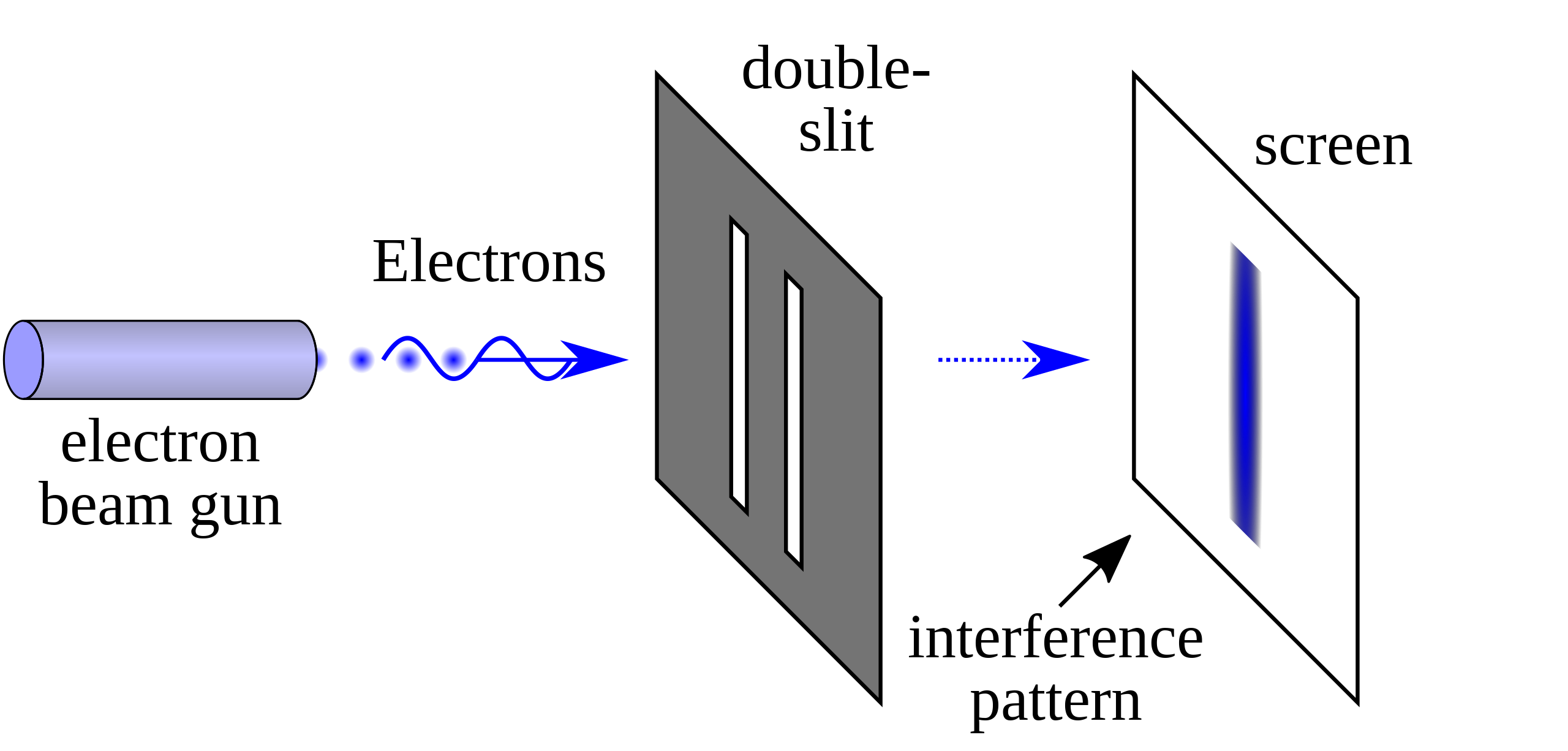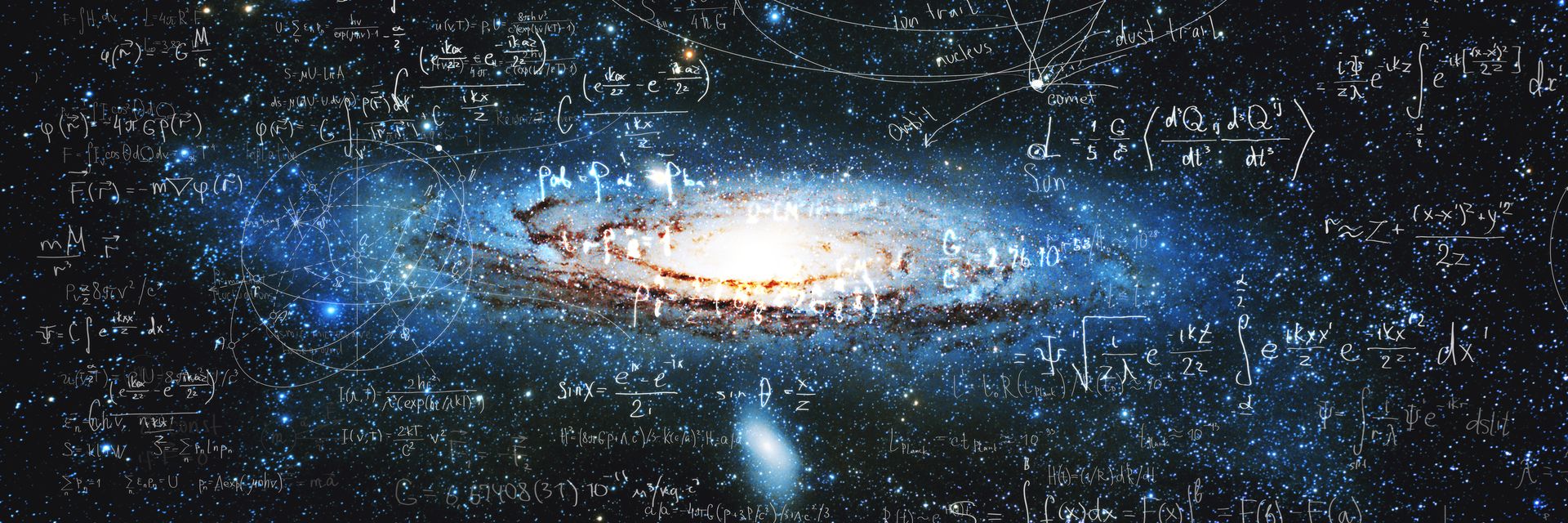Quantum physics (aka quantum mechanics or quantum theory) is one of the most complicated things you can study, but it’s also incredibly mind-blowing. Let’s focus on some of the basic tenets of quantum mechanics, and use those to explore the relationship among quantum science, human thought, and some of the deepest philosophies of Christianity and Buddhism. We’ll explore the fundamentals of quantum theory – and maybe we’ll find some hints about the nature of reality along the way.
◊
Do you believe that two things can be in the same place at the same time? For a long time, scientists rejected this notion point-blank, along with all manner of ideas about logical impossibilities. Then quantum physics came along, and revealed that seemingly incompatible truths might not only be possible – they just might comprise the very essence of reality.
Quantum theory arose around the turn of the 20th century, when scientists developed the technology to study tiny entities known as quantum particles. Merriam-Webster Dictionary defines a “quantum” as “any of the very small increments or parcels into which many forms of energy are subdivided.” So, if we’re talking light, a quantum particle would be a photon; if we’re talking matter, the quantum is the electron.
As scientists studied these miniscule entities, they began to observe some strange things. These observations led to the development of the field of quantum physics, which has broken open everything previously known about science, raising some of the deepest questions of our time – questions usually left for religion and metaphysics to handle.
Now, before we go any further, realize one thing: Not even the most advanced scientists fully understand quantum physics, and there’s no way we’ll be able to adequately summarize its intricacies here. With that in mind, we do know that quantum physics forces us to question reality. It makes us ask whether everything we think we know is independently real or constructed by our minds, and it proposes ways that both of these can be true at the same time.
So, we’re standing on a precipice of sorts, looking out into the unknown and the unknowable. But instead of trying to figure it all out, from here on, try letting your mind take flight into the baffling, confounding realm of the quantum, where reality dissolves and science and faith reveal their parallels.
It might take some hefty open-mindedness – some “quantum thinking," you might say. Quantum physics requires us to accept how little we know, while understanding that by doing this, we may be closer than ever to seeing the universe as it actually is.
Basic Tenets of Quantum Physics
So what is quantum physics? From a historical perspective, the field was introduced to the scientific community around 1900, when German physicist Max Planck proposed that energy acts in a way that is similar to matter and was therefore quantifiable. Later, Albert Einstein (who actually hated quantum physics) built upon Planck’s research, arguing that radiation is quantifiable, and he used this to discover the speed of light and that energy could move as waves and particles.
To learn more about Einstein’s fraught relationship with quantum physics, check out the documentary Secrets Of Quantum Physics:
Warner Heisenberg, Niels Bohr, and Erwin Schrödinger are some of the more famous scientists who were instrumental in developing quantum physics in the 20th century. Today, with concepts like string theory, modern physicists are attempting to entwine quantum mechanics with Einstein’s theory of relativity to create a new way of seeing the world.
Basic tenets of quantum physics include . . .
- Something can be both a particle and a wave at the same time.
A “particle” is stagnant, existing in just one place. A “wave” is spread out and lacks a specific location in space and time. According to quantum physics, quanta exist as “waves” until they are directly observed or measured; only then do they locate themselves in space and time.
- The universe is made of probabilities.
Quantum physics says that we can think of “waves” as “probability fields.” In quantum physics, everything is a vast (but not infinite, as Planck proved) space where something could theoretically be, all at once, until it’s observed or interacted with. Quantum physics postulates that the entire universe can be thought of as a series of constantly changing particles that can be studied through probabilities.
- A particle can be in many different places at once.
Here’s where things get even weirder. The theory of “quantum entanglement” shows that when two particles interact in the right way, influencing one necessarily influences the other no matter how far apart they are. The totality or sum of all these entangled particles is called quantum “superposition.”

The double slit experiment is another famous example of the difference between classical and quantum physics.
(Credit: NekoJaNekoJa/Johannes Kallihauer, via Wikimedia Commons)
The idea of superposition is addressed by the thought experiment known as Schrödinger’s cat. In this experiment, a cat is placed into a box with a flask of poison and a radioactive source. The radioactive entity is likely to break at some point, thus breaking the flask and killing the cat, but the likelihood that this will happen can only be determined by probability. Therefore, until the box is opened, the cat can be both dead and alive at the same time. In a similar way, quantum particles can occupy different states simultaneously until they’re measured.
Getting Closer to God with Quantum Faith
So what does this all have to do with faith and religion?
Religion and science have always seemed incompatible (almost as incompatible as the idea that a particle can also be a wave, you might say). But when you look at the relationship between science and faith, you begin to see that the two may be far more similar to each other than we ever dreamed. Could quantum physics be the bridge we’ve been searching for?
Many scientists believe that all “quantum mysticism” is pure quackery, which may be so. Still, it’s fascinating to at least entertain the similarities in the language used by religious leaders and that used by modern scientists.
It’s up to you to decide what to believe. Just remember, quantum physics tells us that by making a decision, you might be creating your answer, and if you had made another decision or used another method, the truth you settled on might have ended up looking very different.
To learn more about the arguments between scientists and religious leaders, view theMagellanTV documentary Science Vs God:
According to one eminent leader, the connections between the Mahayana school of Buddhism and quantum physics are obvious. The Dalai Lama began exploring the relationship between science and spirituality in his youth, and for decades, he’s been convening conferences that explore the relationship between these two seemingly separate approaches to understanding the universe and our place in it. “If on the quantum level, matter is revealed to be less solid and definable than it appears, then it seems to me that science is coming closer to the Buddhist contemplative insights of emptiness and interdependence,” he stated in his book, The Universe in a Single Atom.
One essential principle in Mahayana Buddhism is the concept of “emptiness,” which means that nothing has inherent existence. If you look at your hand, you see that it’s made up of fingers and flesh and bones, and that it doesn’t exist separately from the rest of your body. A “hand” only exists because you observe and name it.

(Credit: Ian Furst, via Wikimedia Commons)
This concept bears many similarities to the aforementioned particle-wave idea, which tells us that everything exists in a flowing wave state until it’s observed. This is just one of the overlaps between quantum physics and Buddhism, and their intersection has become an increasingly cutting-edge area of study.
And Buddhism isn’t the only religion to which quantum physics has been linked. Some Christian scientists have identified similarities between the language used by Jesus Christ and the language of quantum physics. “Quantum physics finds that atoms exist in a semi-real, pure potential, virtual state until a viewer looks at them with an expectation,” posits the Christian author Mike Hicks. “It is the expectation of the viewer that determines their actual, ‘real’ nature in that moment. Similarly, the Bible says that faith determines the nature of that person’s reality.”
“The first gulp from the glass of natural sciences will make you an atheist but at the bottom of the glass God is waiting.” – Warner Heisenberg
A litany of other connections have been made between quantum physics and faith. For example, the Bahá’í faith’s sacred text contains many linguistic similarities to quantum physics – it’s full of mentions of interconnected and multiple realities, which could certainly resonate with ideas about the quantum realm.
From Corporate Culture to Social Justice to Self-Help: The New Quantum Thinking
Quantum physics is also popular among New Age philosophers, who have begun to use the term “quantum thinking” as a catch-all term for a certain self-help philosophy. In some definitions, the term emphasizes the human mind’s ability to imagine multiple futures and innovative ways of solving problems. Others use quantum physics to argue that the mind is instrumental in shaping reality, and that we can literally alter the world by “manifesting,” or envisioning, a new one.

In addition to its prominence in spiritual and pop-philosophical domains, quantum thinking has become popular in corporate offices and in social justice circles due to its powerful ability to influence the human mind. Quantum thinking programs encourage people to practice radical empathy, to question their own biases, and to understand how powerfully their own minds influence their perceptions. Everyone from leading philosopher Tim Maudlin to the popular (and widely criticized) spiritual thinker Deepak Chopra has weighed in.
“Not only should you disagree with others, but you should disagree with yourself. Totalitarian thought asks us to consider, much less accept, only one hypothesis at a time. By contrast quantum thought, as I call it… demands that we simultaneously consider often mutually contradictory possibilities.” – Nick Szabo, Quantum Thinking Pioneer
Despite the ostensible overlaps among religion, quantum thinking, and quantum physics, most scientists identify a clear distinction between quantum physics and these more immeasurable disciplines. It’s true that no one has created a theory or connection that perfectly integrates them all.
What Does It All Mean?
But what if? What if science, faith, and our perception didn’t have to be mutually exclusive? What if they actually inform and shape each other? What if they’re all actually one and the same, distilled into different forms?
In these chaotic times, maybe these are the kinds of questions we need to ask. After all, our world is in the midst of simultaneous ecological collapse and exponential technological growth. Perhaps quantum thinking – the kind that integrates incompatibilities and emphasizes our interconnectedness – could be integral to the story that shapes our future.
Ω
Title image: Science and research of the universe by Ulia Koltyrina via Adobe Stock.

